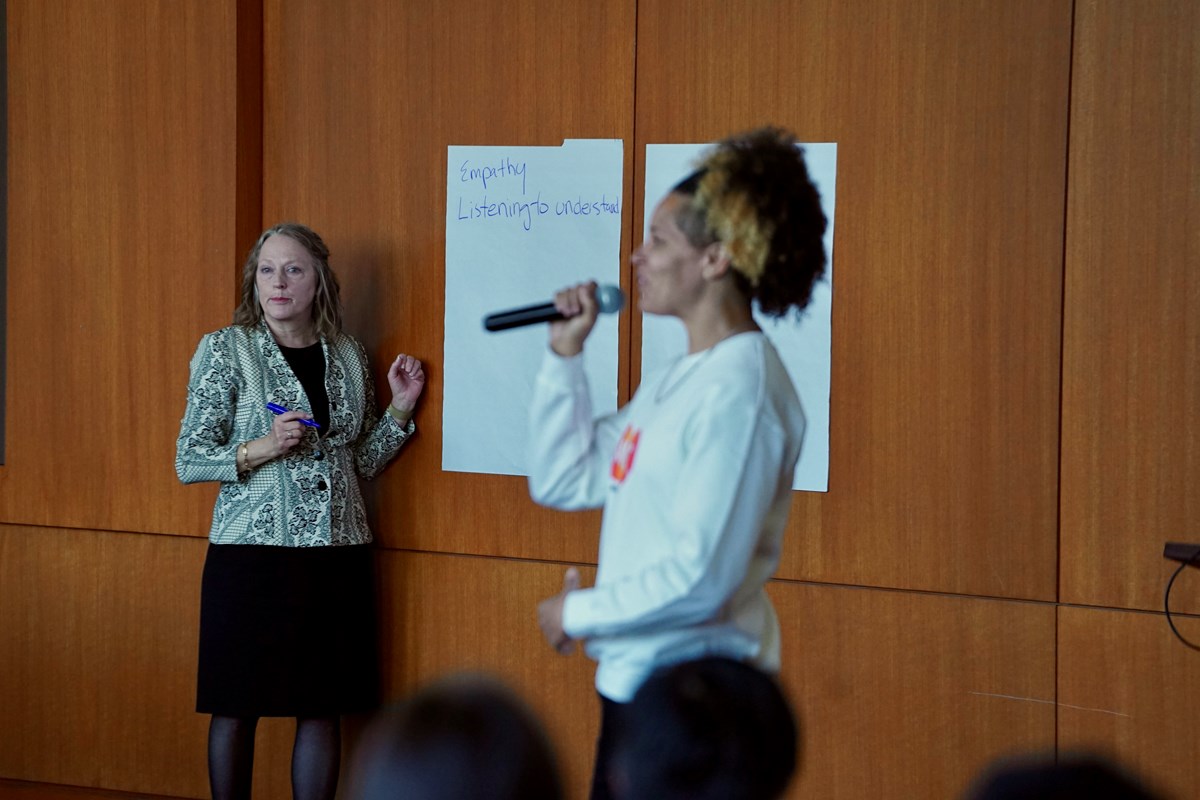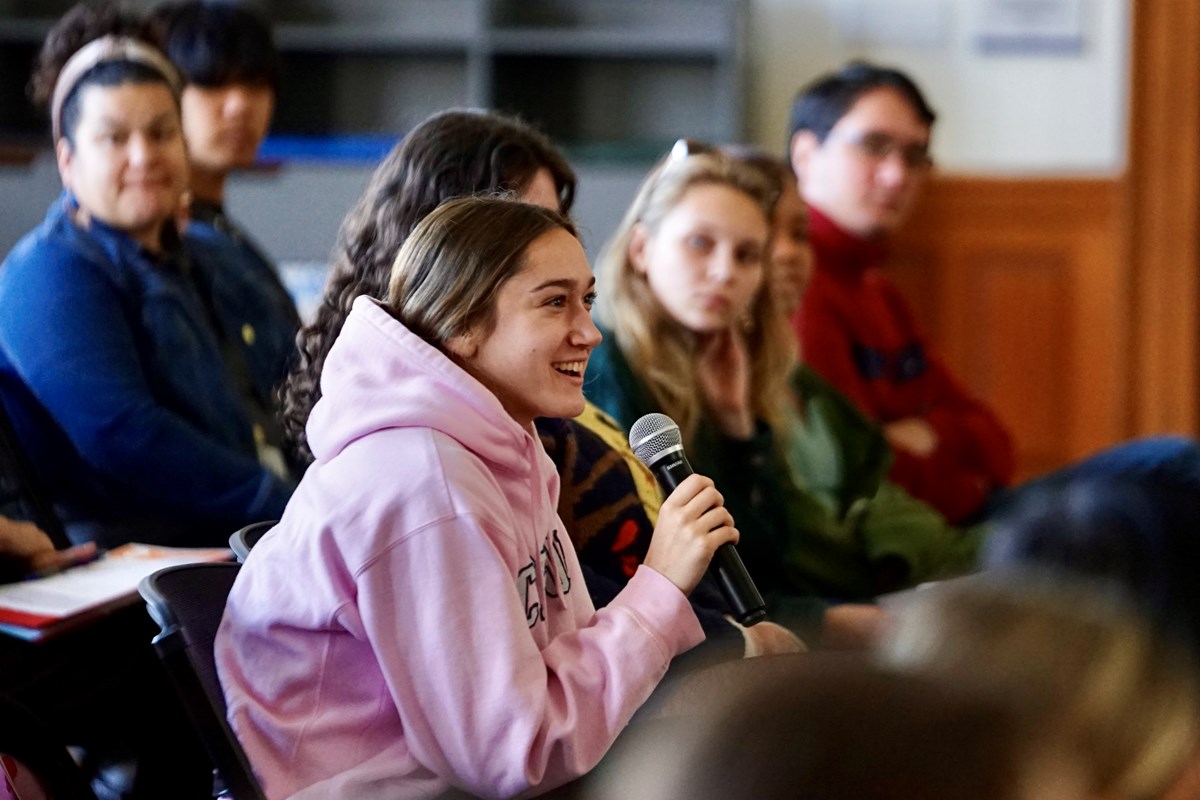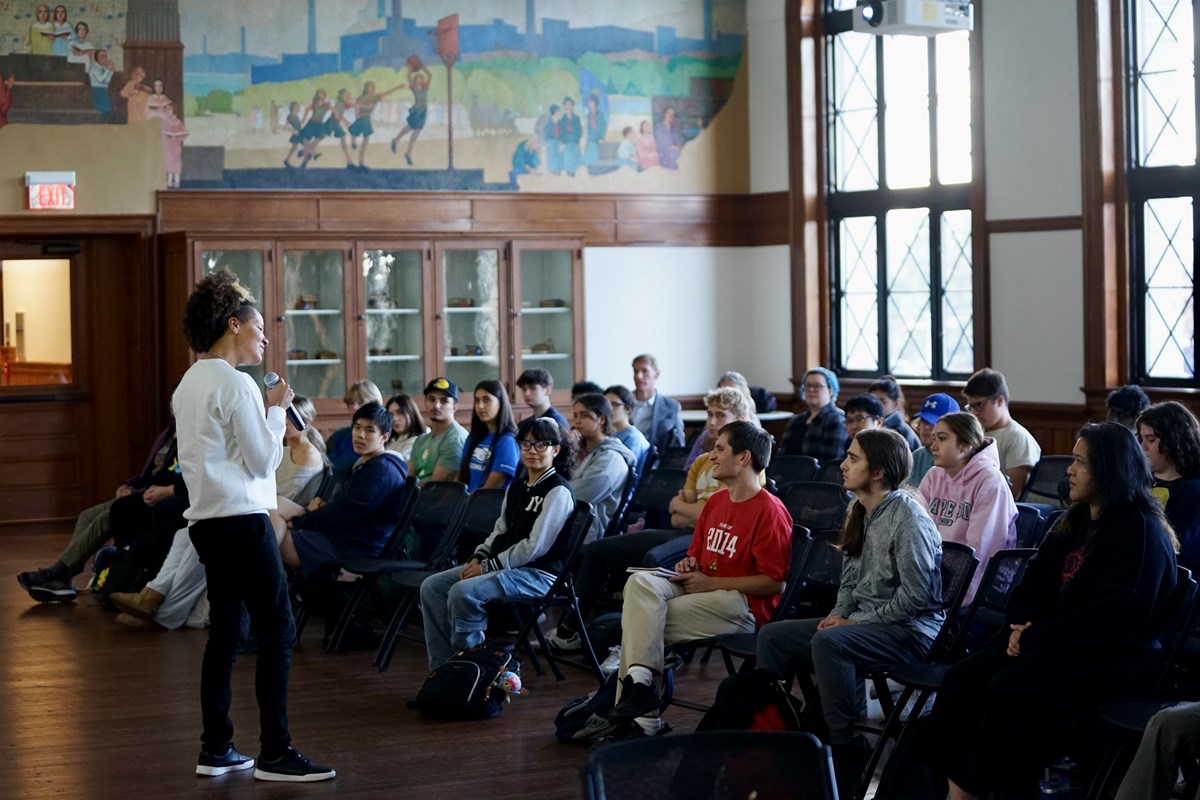 Image by Ed Brennen
Image by Ed Brennen
Genesis Be, global ambassador for the nonprofit organization Moral Courage, shared tips for turning heated debates into healthy conversations during wellness workshops hosted by the Honors College as part of its annual "Honor Yourself Week."
With less than a month to go before a deeply divided U.S. presidential election, the Honors College took the opportunity to give UMass Lowell students, faculty and staff a few skills that can help turn heated debates over polarizing issues into healthy conversations.
As part of its annual “Honor Yourself Week” wellness campaign, the Honors College welcomed Genesis Be, a global ambassador for the nonprofit organization Moral Courage, to lead workshops on North and South campuses.
The Biloxi, Mississippi, native also screened her award-winning documentary film, “Mississippi Turning,” which chronicles her efforts to remove the Confederate emblem from her home state’s flag.
“One aspect of wellness that I think we often forget about, but that is particularly important — especially at this time — is to learn how to deal with discord and have difficult conversations about issues that people are very passionate about,” said Honors College Dean Jenifer Whitten-Woodring.
 Image by Ed Brennen
Image by Ed Brennen
Honors College Dean Jenifer Whitten-Woodring, left, takes notes while Genesis Be leads a workshop with students on how to turn heated debate into healthy dialogue at Coburn Hall.
The documentary, which will be released next year, shows the ensuing hate that Be received online — and also the real-life connection she made with a young man named Louis McFall, who told her that he disagreed with her views but respected her right to express them. (Mississippi changed its flag in 2020 following the protests of the murder of George Floyd.)
“I was getting such vitriol online, but his message stood out because he used the term ‘respect,’” Be said of McFall, who died last year at the age of 36. “He was open-minded enough to not attack me. He extended with respect, and I think that gave me the permission to do the same.”
Be shared the five core communication skills that Moral Courage teaches to organizations: breathe deeply; create common ground; ask what the other believes; listen to learn, not merely to understand; and say, “Tell me more.”
 Image by Ed Brennen
Image by Ed Brennen
A student shares her thoughts during the Honor Yourself Week workshop at Coburn Hall.
“They’re definitely a handful, but I feel like asking them to explain their views will help us talk more constructively,” said Shapiro, who is from Methuen, Massachusetts.
Erin McDevitt, a first-year business major from Portland, Oregon, was struck by how Be was both confident and vulnerable.
“It was super-inspirational,” said McDevitt, who plans to listen to learn more in the future. “Sometimes I just listen and I’m like, ‘Yeah, I agree,’ because I’m hearing their perspective, but I’m not actually trying to learn.”
As a member of the UML women’s lacrosse team, McDevitt is surrounded by students with different perspectives from all walks of life. Be’s presentation served as a reminder, McDevitt said, that people should be able to talk with one another without “walking on eggshells.”
 Image by Ed Brennen
Image by Ed Brennen
After leading a morning workshop at Alumni Hall on North Campus, Genesis Be spoke with students at Coburn Hall on South Campus.
Be’s advice to take a deep breath resonated with Sergey Batrin, a first-year chemical engineering major from North Andover, Massachusetts.
“I feel like I'm always rushing to say what I have to say next, but taking a deep breath lets me process what the other person is saying,” said Batrin, who has been troubled by the growing polarization that he’s seen in society in recent years.
“Growing up, I always saw these two-sided disagreements in America where nobody listens,” he said. “I don’t care if someone disagrees, but why do some people have such one-dimensional minds? Try hearing the other side out before you set your point of view in stone.”
Be said it’s important for students to learn these communication skills because “college should be the place where people can speak about anything and disagree and have healthy … not only debate, but intentional discussion.”
“I don't know where we're at in our country when it comes to freedom of speech and censorship anymore, but I think that it's healthy for us to push for more of that,” she said. “And I think talking to the future leaders of our country, letting them know that that division you see online — I call it ‘the industry of division’ — you don’t have to be a part of that.”
“You can be a connector of people,” she said. “You can create the culture of conversation, not just be at its whim. There’s no power in that.”
